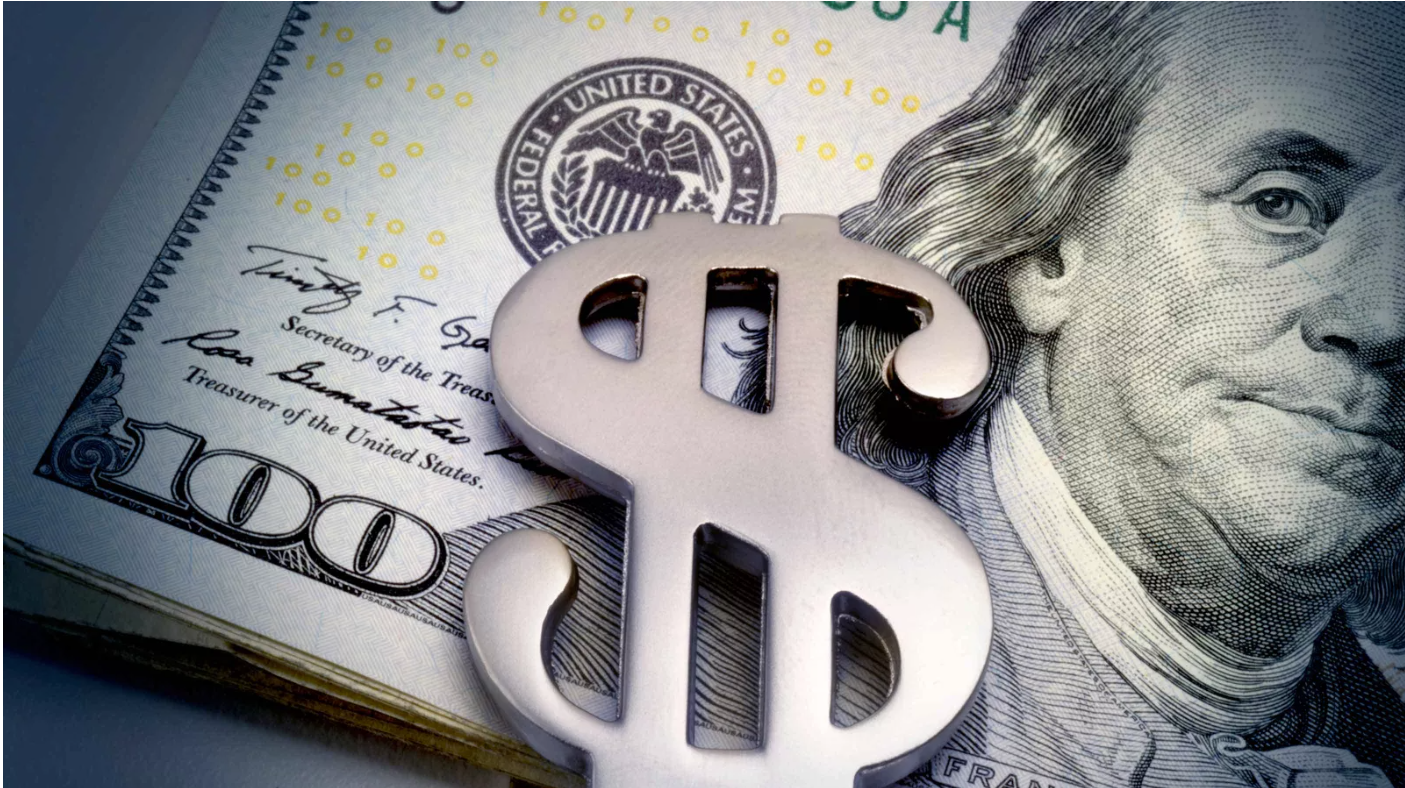Is the Dollar’s Role as the Top Currency Safe? Kiplinger Economic Forecasts
Should you worry about efforts to replace the dollar, as rivals circle?


Profit and prosper with the best of Kiplinger's advice on investing, taxes, retirement, personal finance and much more. Delivered daily. Enter your email in the box and click Sign Me Up.
You are now subscribed
Your newsletter sign-up was successful
Want to add more newsletters?

Delivered daily
Kiplinger Today
Profit and prosper with the best of Kiplinger's advice on investing, taxes, retirement, personal finance and much more delivered daily. Smart money moves start here.

Sent five days a week
Kiplinger A Step Ahead
Get practical help to make better financial decisions in your everyday life, from spending to savings on top deals.

Delivered daily
Kiplinger Closing Bell
Get today's biggest financial and investing headlines delivered to your inbox every day the U.S. stock market is open.

Sent twice a week
Kiplinger Adviser Intel
Financial pros across the country share best practices and fresh tactics to preserve and grow your wealth.

Delivered weekly
Kiplinger Tax Tips
Trim your federal and state tax bills with practical tax-planning and tax-cutting strategies.

Sent twice a week
Kiplinger Retirement Tips
Your twice-a-week guide to planning and enjoying a financially secure and richly rewarding retirement

Sent bimonthly.
Kiplinger Adviser Angle
Insights for advisers, wealth managers and other financial professionals.

Sent twice a week
Kiplinger Investing Weekly
Your twice-a-week roundup of promising stocks, funds, companies and industries you should consider, ones you should avoid, and why.

Sent weekly for six weeks
Kiplinger Invest for Retirement
Your step-by-step six-part series on how to invest for retirement, from devising a successful strategy to exactly which investments to choose.
The dollar is one of the centerpieces of not just the U.S. economy but the world economy too, and our highly-experienced Kiplinger Letter team will keep you abreast of the latest developments and forecasts (Get a free issue of The Kiplinger Letter or subscribe) for the dollar. You will get all the latest news first by subscribing, but we will publish many of the forecasts a few days afterward online. Here’s the latest…
Talk of challenging the buck is growing. Countries hit by U.S. financial sanctions in relation to the war in Ukraine see those efforts as the “weaponization of the dollar,” and are trying to promote alternatives to the dollar as the currency used in most trade and as the global reserve currency.
Cryptocurrency fans argue crypto is better than any government-backed money since crypto can’t be manipulated by governments or central banks.
From just $107.88 $24.99 for Kiplinger Personal Finance
Become a smarter, better informed investor. Subscribe from just $107.88 $24.99, plus get up to 4 Special Issues

Sign up for Kiplinger’s Free Newsletters
Profit and prosper with the best of expert advice on investing, taxes, retirement, personal finance and more - straight to your e-mail.
Profit and prosper with the best of expert advice - straight to your e-mail.
The dollar still reigns despite challenges
These sorts of warnings are nothing new. In the 1990s, the Japanese yen was talked about as a replacement for the dollar. Then it was the euro. We expect the dollar to retain its supremacy.
But that doesn’t mean changes aren’t afoot in the international payments system. It’s important to know what’s coming as the dollar faces new rivals.
First, consider what’s at stake. The U.S. enjoys several major economic advantages by virtue of issuing the most widely used currency in the world.
Worldwide demand for dollars helps keep interest rates lower for borrowers here. The ubiquity of the dollar in global commerce reduces transaction costs across borders and also lowers the price of imported goods. Borrowers in the U.S. don’t have to worry about fluctuations in the currency they borrow in, either.
Which currencies pose the biggest challenge to the dollar?
Now, several emerging-market countries want to dethrone the dollar by creating their own shared currency, somewhat akin to the euro. They resent the role of the dollar in commerce. But banding together to launch a new currency is very hard.
The more likely challenger: China’s yuan. Beijing wants China to be insulated from any future financial sanctions like the ones Washington slapped on Russia. It has already built its own international payments system as an alternative to SWIFT, long the dominant system, from which Russia has been cut off. It’s also succeeding in getting the yuan used in more cross-border transactions. Russia in particular has embraced China’s currency to help it keep selling its energy and other exports.
China wants to supplant the dollar in its bid to be the new world superpower. While the yuan is sure to gain wider usage, it’s unlikely to replace the dollar. China won’t liberalize its finances to give the yuan the dollar’s advantages, its ease of use, convertibility, freedom to float in value as the economy warrants, etc.
The challenge from within the U.S.
The most immediate threat to the dollar’s reserve status may be domestic: The risk that the U.S. may breach its debt ceiling and miss interest payments on Treasury bonds is the sort of thing that undermines global confidence in the dollar.
We still think Congress and the president will avert that danger. But our fiscal strains aren’t going away, a hard political reality that both parties will have to grapple with.
This forecast first appeared in The Kiplinger Letter. Since 1923, the Letter has helped millions of business executives and investors profit by providing reliable forecasts on business and the economy, as well as what to expect from Washington. Get a free issue of The Kiplinger Letter or subscribe.
Read more
Profit and prosper with the best of Kiplinger's advice on investing, taxes, retirement, personal finance and much more. Delivered daily. Enter your email in the box and click Sign Me Up.

Rodrigo Sermeño covers the financial services, housing, small business, and cryptocurrency industries for The Kiplinger Letter. Before joining Kiplinger in 2014, he worked for several think tanks and non-profit organizations in Washington, D.C., including the New America Foundation, the Streit Council, and the Arca Foundation. Rodrigo graduated from George Mason University with a bachelor's degree in international affairs. He also holds a master's in public policy from George Mason University's Schar School of Policy and Government.
-
 Nasdaq Leads a Rocky Risk-On Rally: Stock Market Today
Nasdaq Leads a Rocky Risk-On Rally: Stock Market TodayAnother worrying bout of late-session weakness couldn't take down the main equity indexes on Wednesday.
-
 Quiz: Do You Know How to Avoid the "Medigap Trap?"
Quiz: Do You Know How to Avoid the "Medigap Trap?"Quiz Test your basic knowledge of the "Medigap Trap" in our quick quiz.
-
 5 Top Tax-Efficient Mutual Funds for Smarter Investing
5 Top Tax-Efficient Mutual Funds for Smarter InvestingMutual funds are many things, but "tax-friendly" usually isn't one of them. These are the exceptions.
-
 Big Change Coming to the Federal Reserve
Big Change Coming to the Federal ReserveThe Lette A new chairman of the Federal Reserve has been named. What will this mean for the economy?
-
 The U.S. Economy Will Gain Steam This Year
The U.S. Economy Will Gain Steam This YearThe Kiplinger Letter The Letter editors review the projected pace of the economy for 2026. Bigger tax refunds and resilient consumers will keep the economy humming in 2026.
-
 Trump Reshapes Foreign Policy
Trump Reshapes Foreign PolicyThe Kiplinger Letter The President starts the new year by putting allies and adversaries on notice.
-
 Congress Set for Busy Winter
Congress Set for Busy WinterThe Kiplinger Letter The Letter editors review the bills Congress will decide on this year. The government funding bill is paramount, but other issues vie for lawmakers’ attention.
-
 The Kiplinger Letter's 10 Forecasts for 2026
The Kiplinger Letter's 10 Forecasts for 2026The Kiplinger Letter Here are some of the biggest events and trends in economics, politics and tech that will shape the new year.
-
 Special Report: The Future of American Politics
Special Report: The Future of American PoliticsThe Kiplinger Letter Kiplinger assesses the political trends and challenges that will define the next decade.
-
 What to Expect from the Global Economy in 2026
What to Expect from the Global Economy in 2026The Kiplinger Letter Economic growth across the globe will be highly uneven, with some major economies accelerating while others hit the brakes.
-
 Shoppers Hit the Brakes on EV Purchases After Tax Credits Expire
Shoppers Hit the Brakes on EV Purchases After Tax Credits ExpireThe Letter Electric cars are here to stay, but they'll have to compete harder to get shoppers interested without the federal tax credit.